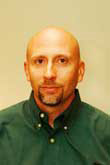Most Americans pay little attention to the sport of cycling except for the exploits of Lance Armstrong in the Tour de France, but the spring Classics of 2010 offered a notable feat by Fabian Cancellara that speaks to much we should consider as a culture and as a people often seeking better schools.
In eight days of early April 2010, Cancellara, a Swiss cyclist riding for Saxo Bank, powered away from an entire professional field of elite cyclists to win the prized Tour of Flanders and Paris Roubaix--mythic cycling events that are followed with more interest in their countries than the Super Bowl in the US. Cancellara, like Armstrong, likely triggers in the American psyche our affinity for the rugged individual--that person who succeeds by rising above all sorts of adversity.
Yes, in the US, we believe the rugged individual myth, and we also regularly evoke the rugged individual as not just possible, but the ideal for any person to achieve. While many consider this ideal a central tenant of the wider American Myth, we would all benefit from recognizing that the rugged individual simply doesn't exist and promoting the myth as both possible and ideal causes each of us more harm than good.
On April 4 and 11, I watched Cancellara win two of the most inspiring races I have ever watched, and consider his feats some of the best athletic performances I have ever witnessed. And while he did cross the finish lines by himself, it is careless and naà �ve to suggest that he did so solely of his own determination. Cancellara did not "pull himself up by the bootstraps"; in fact, Cancellara's singular accomplishment was not possible without dozens of other people, including those against whom he competed.
Despite what many think, cycling is a team sport, and winning a bicycle race often means one rider receives help in a variety of ways from several other riders (who succeed by sacrificing themselves for the good of the team and one other teammate) and dozens of support staff along the course. In one of his victories, in fact, Cancellara had to dismount his bicycle and swap it for another--all of which had to be orchestrated nearly perfectly for him to succeed.
French writer and philosopher Albert Camus offered his view of the human condition by envisioning the mythical Sisyphus, not as the rugged individual, but as the individual bound to the context of his being. Sisyphus was condemned to pushing a rock over and over up a mountain only to have the rock roll each time back to the base of that hill.
Camus examined two important points about what many would see as a torturous existence. First, Camus asked us to consider Sisyphus happy because it is struggling that is our human condition. And next, and I think this is key, Camus told us that for Sisyphus, the rock was his thing.
We are, I believe, defined by our context--by the people, places, events, and obstacles that surround us. Nothing failed and nothing achieved by a human is done so in a vacuum--or alone.
(Note: You can view every article as one long page if you sign up as an Advocate Member, or higher).





